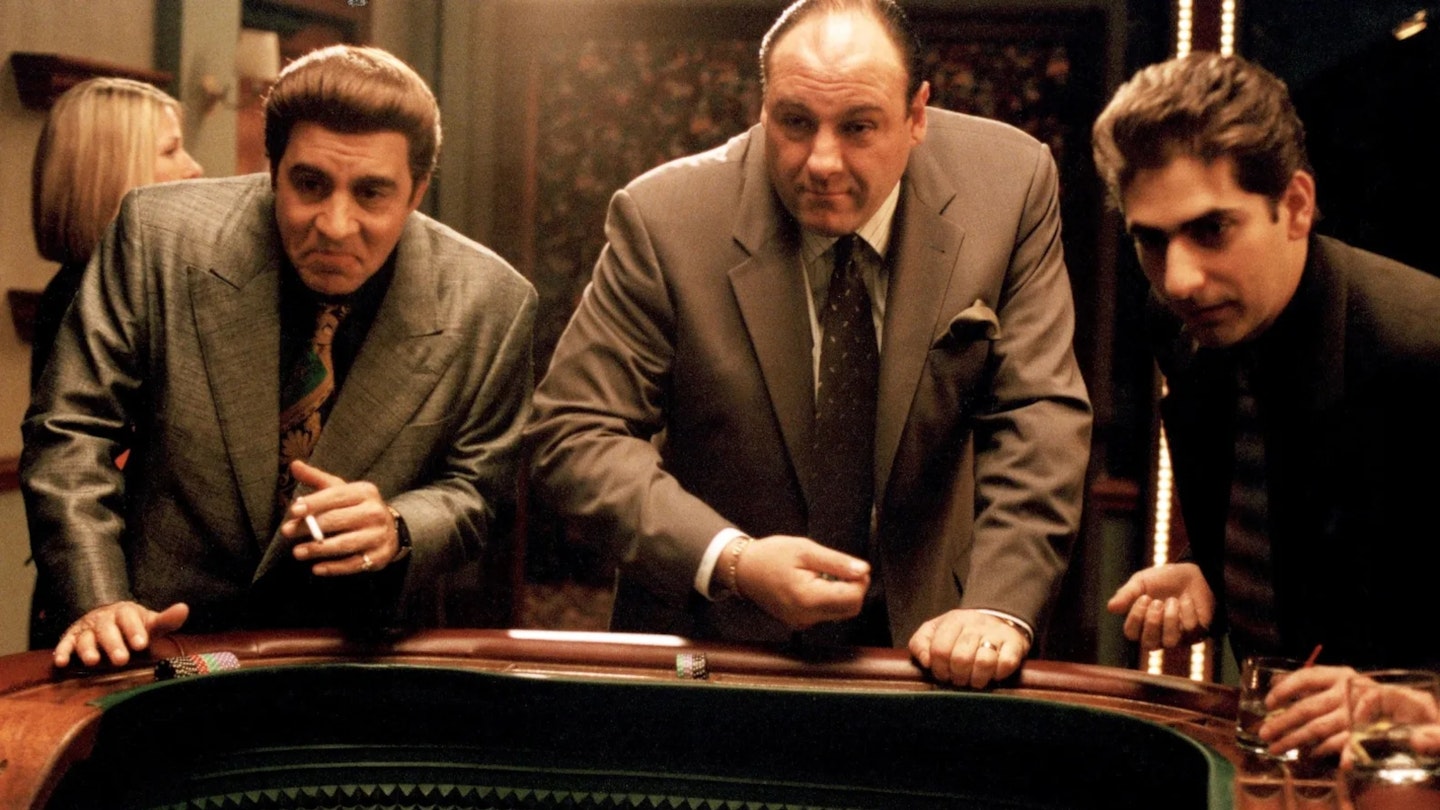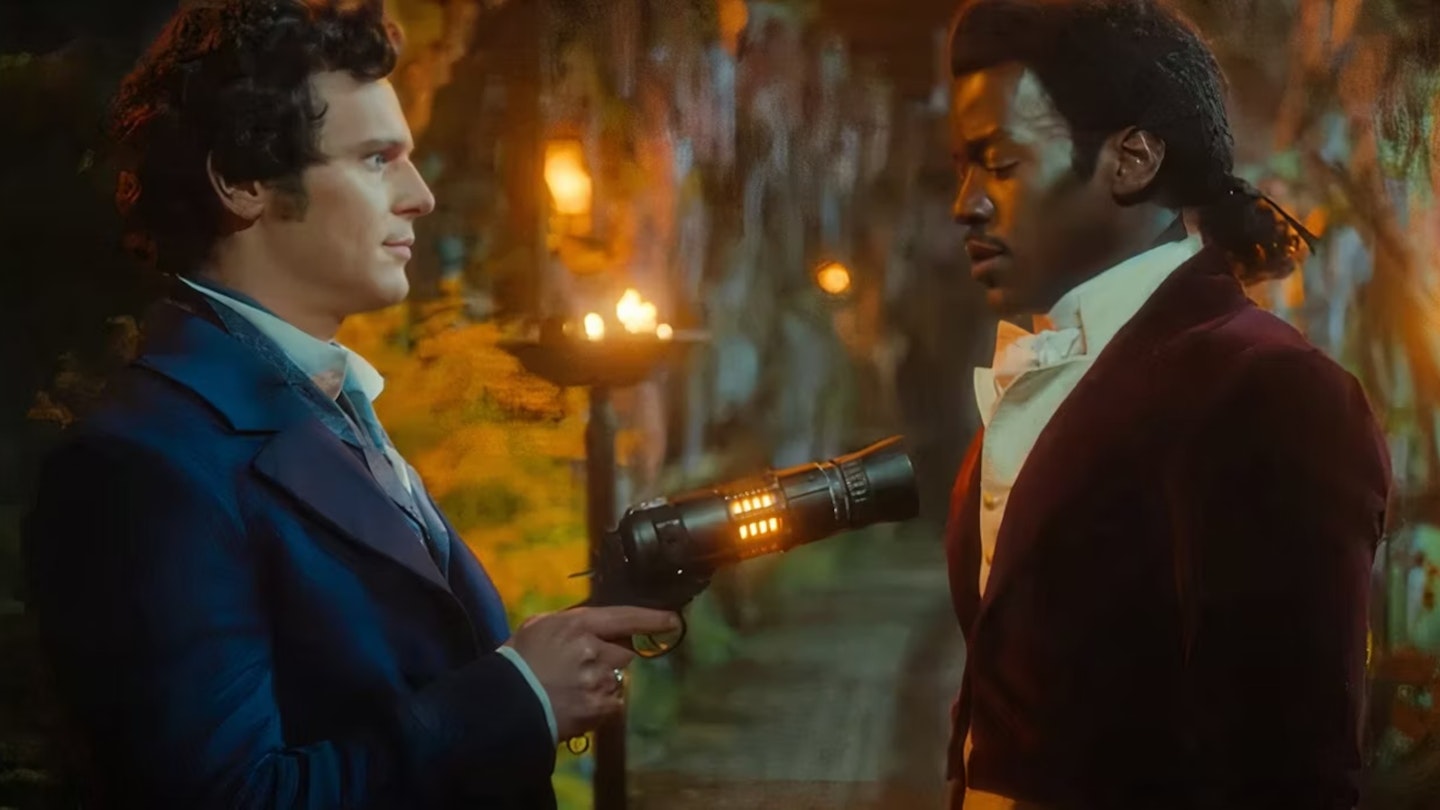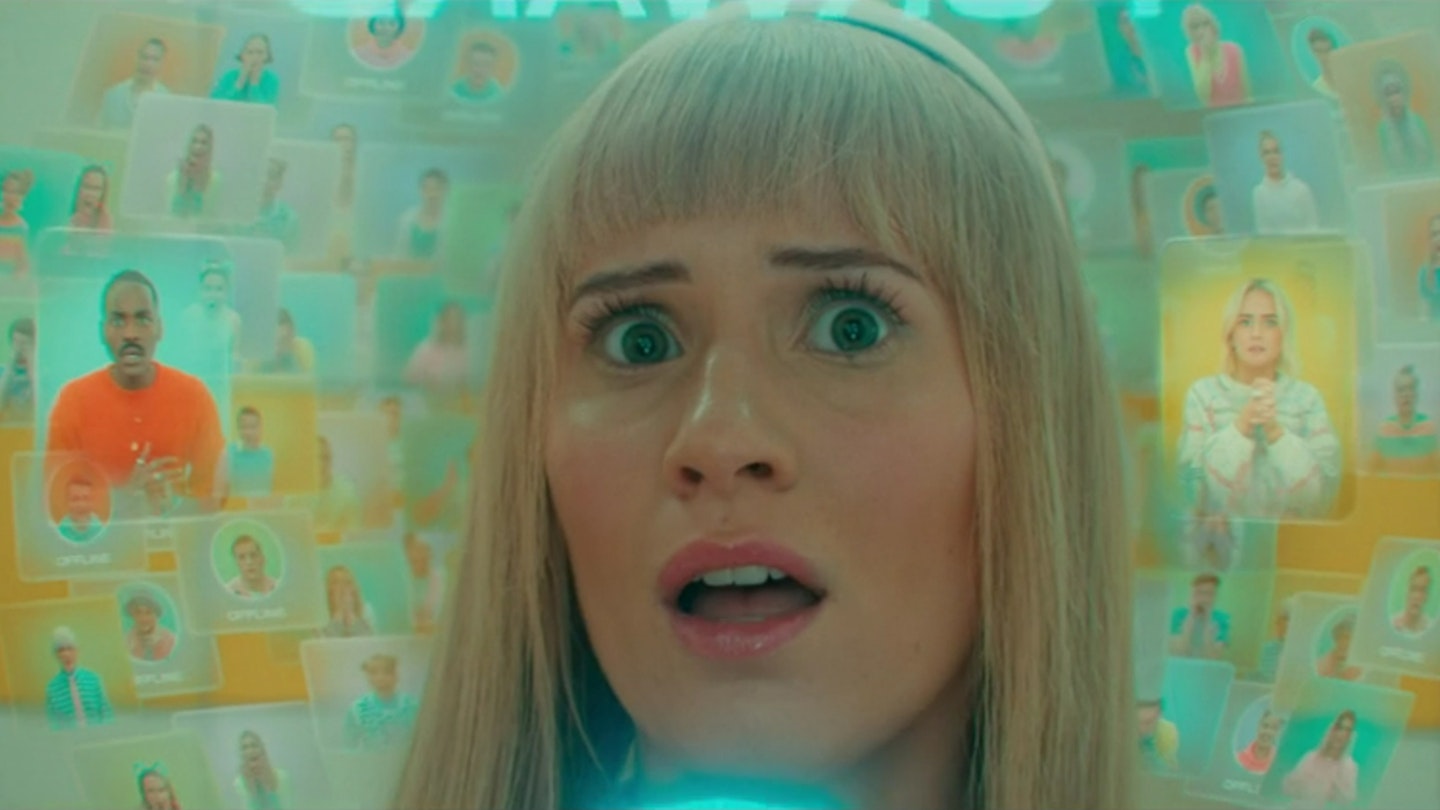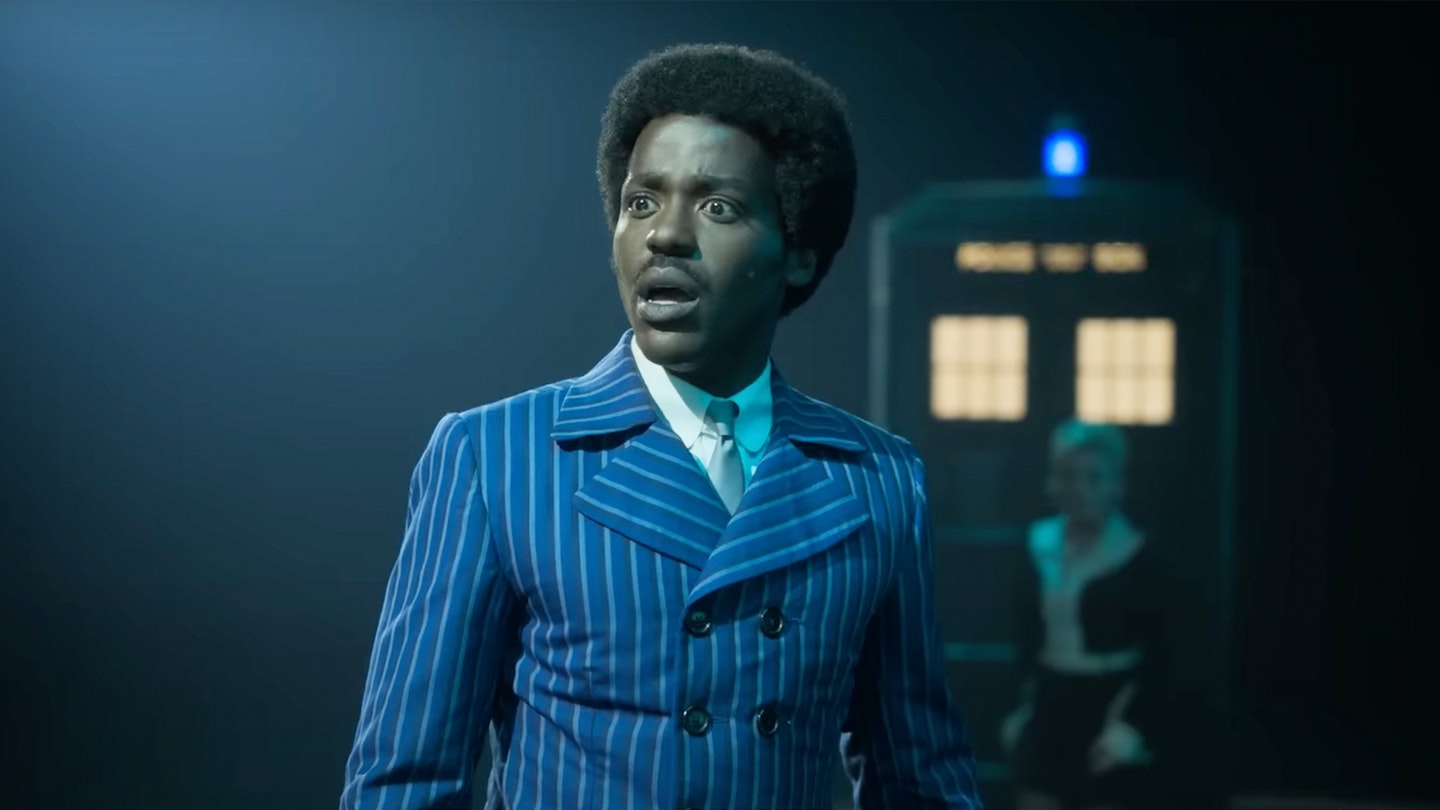*SPOILER WARNING — This review contains heavy spoilers for ‘Empire Of Death’*
With its Time Window based twists, mystery box openings, and big third act Sutekh reveal, ‘The Legend Of Ruby Sunday’ — despite an exposition-heavy opening — ended with the promise of a barnstorming finale ahead for Russell T. Davies’ first series back at the helm of Doctor Who. And it’s safe to say that it’s a promise well kept by ‘Empire Of Death’. Emotionally charged, narratively knotty, and cleverly self-referential, it’s a whirlwind hour of Who that sees Davies tip his hat to Avengers: Infinity War and The Last Jedi as he brings his own grand tale of heroes and villains to a blockbusting conclusion.
If ‘The Legend Of Ruby Sunday’ was a little slow starting, the same can’t be said of ‘Empire Of Death’. In a blistering opening that picks up right where last week’s episode left off, we see Sutekh make good on his God of Death moniker as his dust of death is unleashed upon the universe. In a dazzling display of CG spectacle married with ground-level human drama, old Sutes turns London — and the world along with it — into an ash-strewn sandpit, laying waste to entire civilisations as Kate Lethbridge-Stewart (Jemma Redgrave), her UNIT colleagues, Ruby’s adoptive mother Carla (Michelle Greenidge), Mrs Flood (Anita Dobson), and more get dusted, Thanos style. Naturally, the number of shocking deaths in these breathless first 10 minutes make it abundantly clear to us that the Doctor (Gatwa) will find a way to bring them all back, but the characters themselves don’t know that, and it certainly makes for a bold opening salvo.
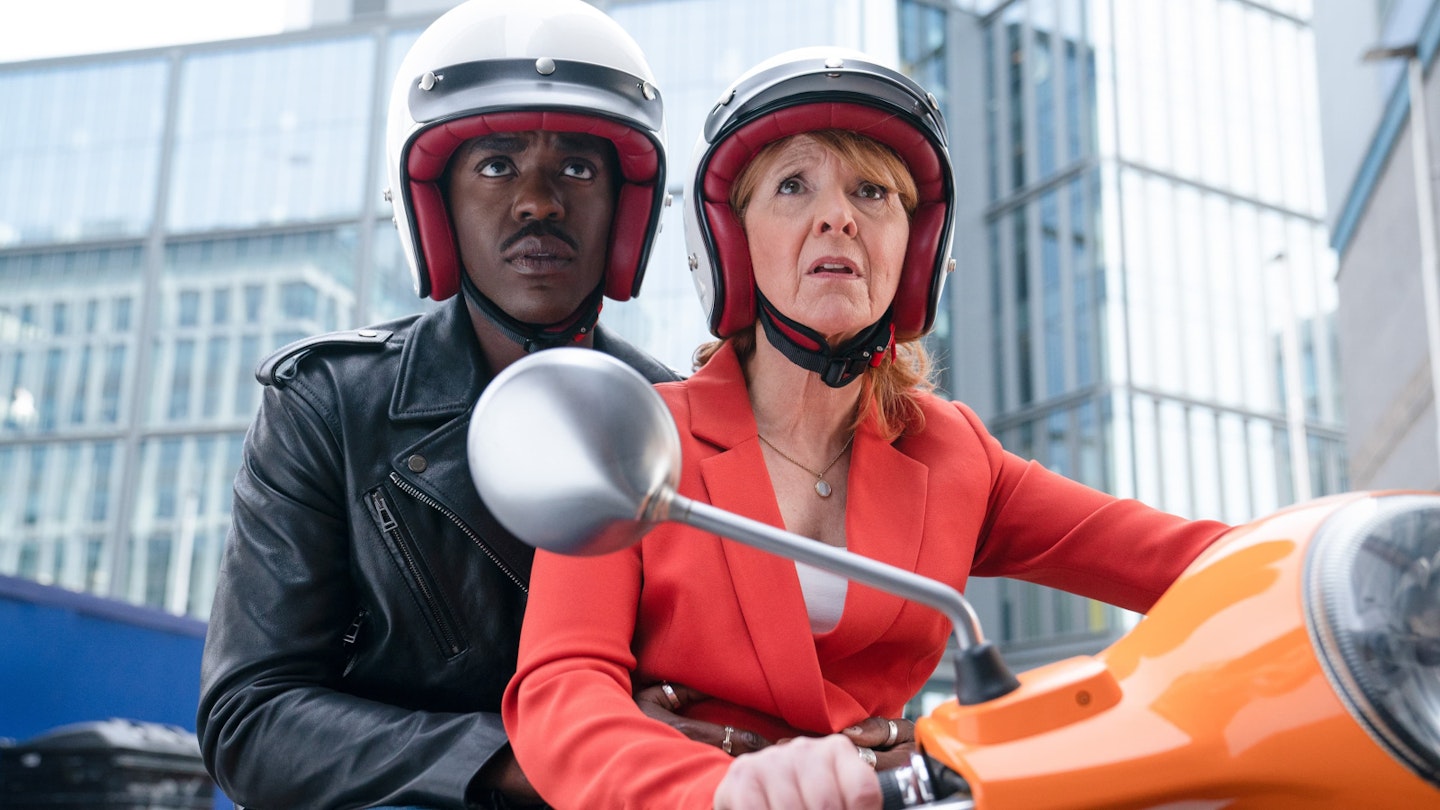
With the Doctor, Mel (Bonnie Langford), and Ruby (Millie Gibson) left reeling from their first confrontation with Sutekh — in which they learn he’s been hanging out atop the TARDIS since Tom Baker’s era, spawning dust-bringing Susan Twists everywhere the Doctor lands — Davies deftly slows ‘Empire’’s pace with the arrival of the Remembered TARDIS. First introduced in Whoniverse spin-off Tales Of The TARDIS, the Remembered TARDIS — a knickknack-filled vessel made from pieces of old TARDISes, lashed together with “hopes and wishes and luck” — creates a space for the Doctor and his companions to reflect on the colossal scale of Sutekh’s destruction. The stark image of Gatwa’s Doctor in the TARDIS doorway, looking out on a dying universe and howling in anguish, is yet another reminder of the extraordinary depth of feeling and emotional vulnerability Gatwa has brought to the Time Lord’s latest regeneration. It’s also a sobering reminder of the heavy cosmic toll extracted by the Doctor’s cosmic joyriding.
The Remembered TARDIS’ appearance also augments Davies’ own metatextual reflections here, too — on fans’ nostalgia for the show, on the show’s nostalgia for itself, and on the nature of fandom in the internet theory age. Not only is the Remembered TARDIS a trove of juicy Whovian easter eggs (Six’s coat and cravat! Bessie’s numberplate! Ten’s helmet from ‘The Satan Pit’!), but its prominence speaks to ‘Empire Of Death’’s relationship with Who itself. That this big reboot’s finale centres on a ‘70s deep-cut big bad whose defeat is catalysed by a highly combustible ship hamstrung together with classic Who ephemera isn’t mere happenstance. Nor is the fact that said big bad’s fatal flaw is an all-consuming desperation to know who Ruby Sunday’s mum is. Yes, the almighty Sutekh, God of all Gods, is essentially an obsessive Whovian hoist by the petard of his own fan theories. As for the Remembered TARDIS, it’s a sage reminder that while nostalgia may occasionally be enough to save the day, the show needs to grow beyond its own legend if it’s to run another 60 years.
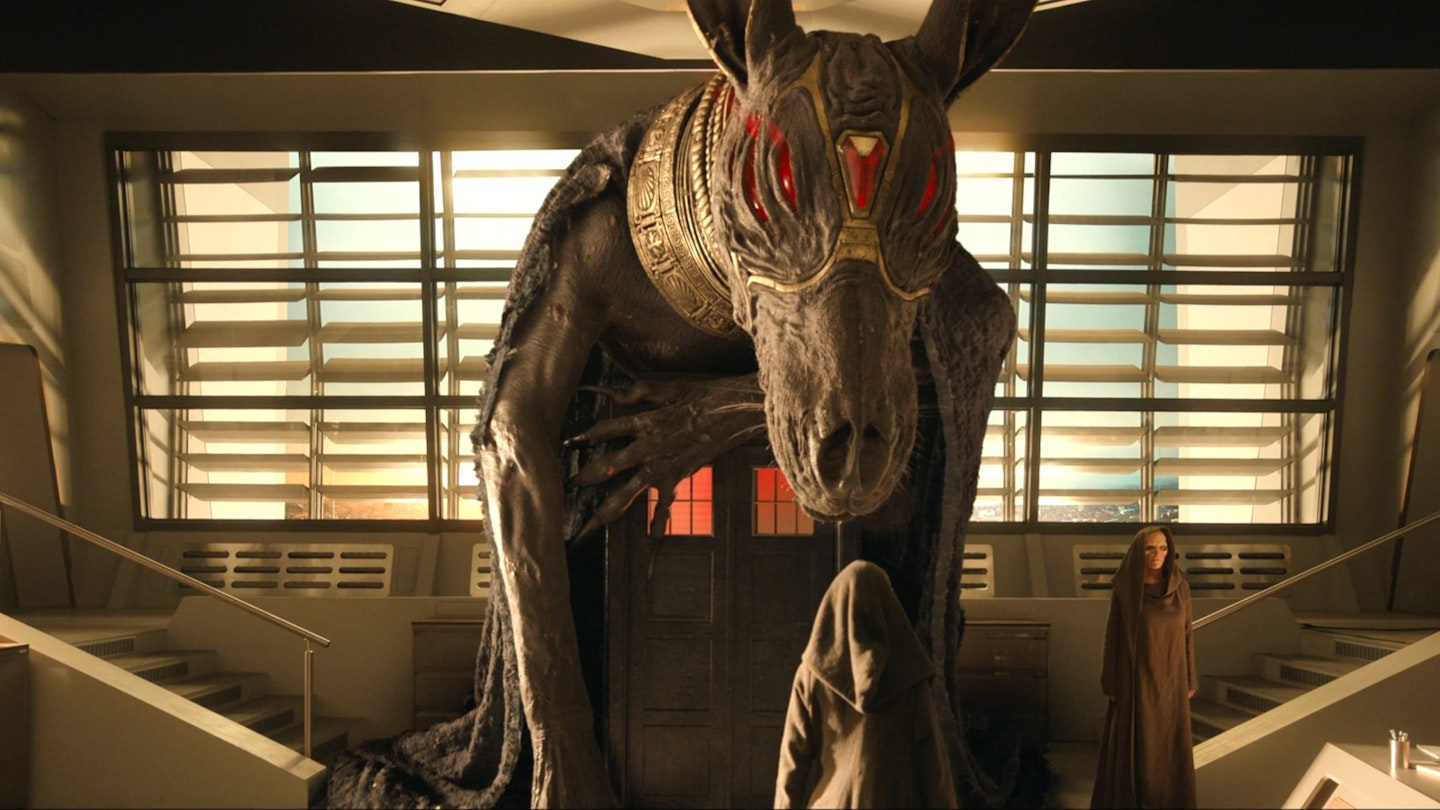
This simultaneous indictment of obsessive fan theory culture and acknowledgment of Who’s need not to be beholden to its past is what makes Davies answer to the series’ big question — Who is Ruby Sunday’s mother? — so inspired. The rug-pull reveal that Ruby’s mother is just an ordinary woman, Louise Miller (Faye McKeever), who fled an abusive home to save her baby and has only been given cosmic significance by the cosmos’ insistence upon it, is a beautifully human, quintessentially Daviesian story beat. In one fell swoop, Davies takes what Rian Johnson set out to do with Rey in The Last Jedi and dares to do what J. J. Abrams eventually couldn’t with The Rise Of Skywalker. Sure, it’s a reveal that throws up its fair share of follow-up questions — What was the snow all about then? How couldn’t Davina McCall and her team track down an NHS nurse? Who saw the cloaked woman pointing to the Ruby Road sign to give her daughter her name? — but emotionally and thematically it makes perfect sense.
Now, ’Empire Of Death’ is not an episode without its foibles by any means. There are logical leaps Davies asks the viewer to take that will prove too much of a stretch for some. The great and powerful Sutekh’s defeat — which largely revolves around a spoon, a whistle, some bungee cord, and ostensibly some big ol’ walkies in the admittedly very impressively rendered Time Vortex — is preposterously silly, even by Who’s standards. The explanation for all those Susan Twists is sound enough and plays nicely into threads of series standout '73 Yards', but does leave billionaire Susan Triad's status at the story's end somewhat unclear. And, despite the emotional sense the revelation of Ruby’s parentage makes, there will be those who look at the seeds sown around that mystery over the course of the series and feel the pay-off doesn’t tally with the set-up.

Nevertheless, there’s a mercurial beauty about a series finale that begins with the dust of death, spewed from the God of all Gods, laying waste to the entire universe, and climaxes with a mother and her daughter being reunited in a coffee shop. To see the grandeur and blockbuster spectacle of everything that’s gone before dwarfed by the emotional heft of a lifelong search for closure finally coming to an end is a testament to Davies’ strengths as a storyteller. Whilst his hand-wavey approach to the overarching mechanics of the Whoniverse can occasionally frustrate, his ability to locate the human heart amidst the show’s cosmic expanse — within Ruby and her mother, within the Doctor’s bone-deep loneliness, within that exquisitely melancholic early episode encounter with Sian Clifford’s ‘Kind Woman’ — is peerless. And the poignance of Gatwa and Gibson’s performances as their foundling tales bittersweetly diverge is a stirring reminder of just how much heart they’ve brought to these characters, despite having shared far less screen time together than Doctors and companions past.
There’s time yet for Doctor Who to build on the questions that remain when the dust (of death) has settled on this series’ finale: a sneak peek of Series 2 aired on Unleashed has already teased Millie Gibson’s imminent return; Mrs Flood’s suspiciously Romana-like appearance in that chilling end of episode sting bodes ominously for our beloved Time Lord; and you sense that the Doctor is heading towards a reunion with his granddaughter Susan sooner rather than later. And before then, a Christmas present is due in the form of Steven Moffat’s upcoming Nicola Coughlan-starring special ‘Joy To The World’. But for now, this first series of Doctor Who’s latest reboot concludes its run on a triumphant note, with Gatwa, Gibson, and Davies having successfully made the world’s longest-running sci-fi series a must-watch once more. Roll on Christmas, roll on Series 2, and roll on the next 60 years of wibbly-wobbly timey-wimey goodness.

